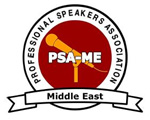
Public Speaking Skills List and Examples
Public speaking is seldom if ever an entire job description, but dynamic and well-prepared speakers are highly valued by employers and tend to earn leadership positions and important client contact roles. Anyone whose job involves communicating, teaching, or persuading will do a better job if they have public speaking skills.

Why Employers Value Public Speaking Skills
The art of public speaking comes into play, not only in the delivery of speeches and truly public talks, but also in professional presentations, training events, and motivational speaking.
Consultants, training, managers, clergy, sales representatives, teachers, and others all have reason to sometimes get up in front of others and talk.
Effective public speakers are in an excellent position to get their messages across in the workplace. A lackluster speaker can make a solid product or proposal seem less than enticing while a polished speaker can add allure to an otherwise mediocre proposition.
Most professional level roles require some amount of public speaking to carry out functions like presenting findings, pitching proposals, training junior staff, and leading meetings.
How to Use Skills Lists
Public speaking is a skill, but it is also a collection of skills. Lists like this one can help you name some of these skills so you can identify which jobs require the abilities you have. Be sure to read job descriptions carefully, because even very similar positions can have different requirements, depending on what the hiring manager is looking for.
When you apply, you can use these skills as keywords in your resume or other application materials. Hiring managers sometimes scan through applications looking for these keywords in order to make an initial cut, so it can be important to make it obvious from the beginning that you have the sought-after qualifications.
Then, use your cover letter to highlight some of your relevant skills. Be prepared to give examples of specific times you embodied these skills during job interviews, because your interviewer is likely to ask.
Of course, each job will require different skills and experiences – hiring managers vary in what they look for, even for very similar positions in the same industry, so make sure you read the job description carefully before applying. Continue reading here.
How to crush stage fright and become a master in public speaking
Public speaking can make even the most confident person turn wobbly at the knees. But today, addressing a crowd is part of the job spec across many roles, whether a fundraising manager for a charity or an account executive.
It can be scary, but key to delivering a brilliant presentation – or at least making it bearable – is investing time preparing your speech. “I always begin my planning with the end in mind,” says Katherine Burik, founder of the Interview Doctor. “What are the one or two main points I want the audience to leave with? Then I think about it from the audience’s perspective. Frame the entire talk around WIIFM [What’s In It For Me?] and build around your main points and you will have a great talk.”
Karen Glossop, founder of Resonance Training – which coaches people in communication and presentation skills – recommends focusing on what the goal of the talk is: “Consider do you want to challenge them, reassure them or inspire them? Then tailor your structure accordingly.”
Rebecca Hourston, managing director, head of coaching programmes at coaching consultancy Talking Talent, recommends one framing method she uses a lot. “Go for BBC delivery: what’s your big message [B], your backup points [B], and your call to action [C] – this provides a powerful and simple framework for a speech or communication,” she says. Continue reading here.
Five Basic Public Speaking Tips
Tags: coaching consultancy, presentation skills, public speaking, public speaking skills, public talks, Talking Talent












